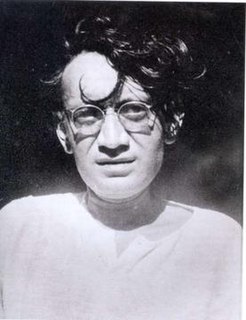A Quote by George MacDonald
Common people, whether lords or shop-keepers, are slow to understand that possession, whether in the shape of birth or lands or money or intellect, is a small affair in the difference between men.
Related Quotes
The true test of the American ideal is whether we're able to recognize our failings and then rise together to meet the challenges of our time. Whether we allow ourselves to be shaped by events and history, or whether we act to shape them. Whether chance of birth or circumstance decides life's big winners and losers, or whether we build a community where, at the very least, everyone has a chance to work hard, get ahead, and reach their dreams.
The difference between ignorant and educated people is that the latter know more facts. But that has nothing to do with whether they are stupid or intelligent. The difference between stupid and intelligent people-and this is true whether or not they are well-educated-is that intelligent people can handle subtlety. They are not baffled by ambiguous or even contradictory situations-in fact, they expect them and are apt to become suspicious when things seem overly straightforward.
The true test is, whether the object be of a local character, and local use; or, whether it be of general benefit to the states. If it be purely local, congress cannot constitutionally appropriate money for the object. But, if the benefit be general, it matters not, whether in point of locality it be in one state, or several; whether it be of large, or of small extent.
Successful democratic politicians are insecure and intimidated men. They advance politically only as they placate, appease, bribe, seduce, bamboozle, or otherwise manage to manipulate the demanding and threatening elements in their constituencies. The decisive consideration is not whether the proposition is good but whether it is popular -- not whether it will work well and prove itself but whether the active talking constituents like it immediately. Politicians rationalize this servitude by saying that in a democracy public men are the servants of the people.






































